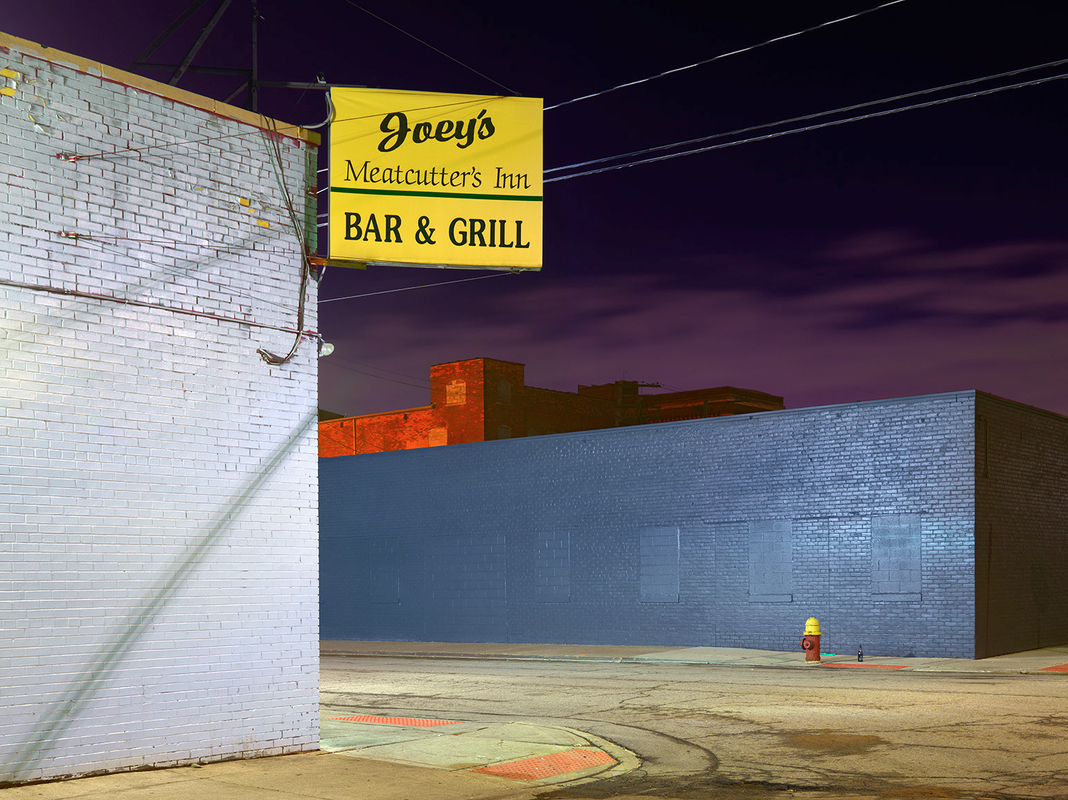Via Mick Hartley, Steve Fitch Photography has neon motel signs glowing into the Western night.
He also has a book simply titled ‘Motel Signs:’
“To me, neon really figured in the migration movement on Route 66. The farther you go out West, the more neon you’d see, especially as a presence on motels. You can see towns like Tucumcari, New Mexico, coming from 20 miles away.”
I may harbor skepticism regarding a more anthropological, back-to-Earth Romantic primitivism found in certain quarters (Berkeley, especially), but I certainly appreciate good composition. Click through for more photos and less pre-judgment.
—
As posted, what’s more American than an exiled member of the Russian aristocracy intimately making his way into the English language and peering out from a thousand Motor Lodges?
Nabokov in America: On The Road To Lolita.
Michael Dirda review of the review here.
“Nabokov in America” is rewarding on all counts, as biography, as photo album (there are many pictures of people, Western landscapes and motels) and as appreciative criticism. Not least, Roper even avoids the arch style so often adopted by critics faintly trying to emulate their inimitable subject.’
—
Well, there’s Donald Judd and Marfa, Texas, which looks interesting:
As previously posted, The Critic Laughs, by Hamilton:
Do you long for the days of unabashed American consumerism? Are you nostalgic for nights lit only by a soft, neon glow on the underbellies of clouds? Return to a time when America broadcast its brash, unironic call to the heavens.
But it can be empty, and lonely, and full of hard work and suffering:
Montana Pastoral
I am no shepherd of a child’s surmises.
I have seen fear where the coiled serpent rises,
Thirst where the grasses burn in early May
And thistle, mustard and the wild oat stay.
There is dust in this air. I saw in the heat
Grasshoppers busy in the threshing wheat.
So to this hour. Through the warm dusk I drove
To blizzards sifting on the hissing stove,
And found no images of pastoral will,
But fear, thirst, hunger, and this huddled chill.
And because this blog likes to keep things a bit mysterious, I think ‘New Slang’ by the Shins (James Mercer) captures three strands I can identify: Western U.S. cowboy folk (Home On The Range), English (England) folk, and Pacific NW hipsterdom, which is interesting to me, and because in the arts, I like to like a song, and think about what’s going on afterwards:
That hipsterdom part likely connects with a lot of powerful modern and postmodern strands which could be affecting all of our institutions sooner or later, but, you know…it’s also just a song.
Click here.
Is that a real tower against a painted sky?
Go West.

